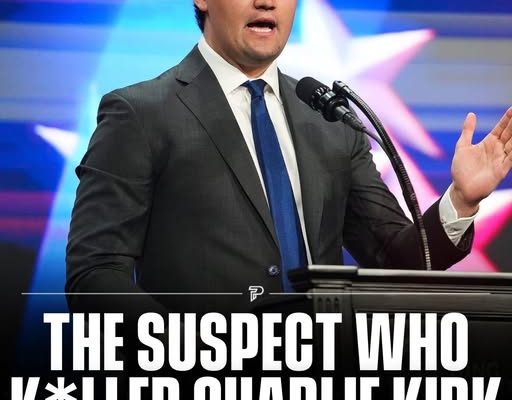Incident Overview
On September 10, 2025, at around 12:10 p.m. MDT, conservative political activist and co-founder of Turning Point USA, Charlie Kirk, was tragically shot during a public event at Utah Valley University (UVU) in Orem, Utah. The shooting occurred while Kirk was speaking at an outdoor campus gathering as part of his “American Comeback Tour.” The event, a Q&A-style session dubbed “Prove Me Wrong,” was taking place under a tent in a university courtyard.
According to eyewitnesses, the shot came from a nearby building, approximately 180 to 200 yards away. After being struck in the neck, Kirk collapsed in front of the crowd. Attendees, visibly shaken and frightened, rushed to safety. The security team quickly transported him to a hospital, but despite efforts to save him, Charlie Kirk was later confirmed dead from his injuries. His tragic death shocked the nation and left many questions unanswered.
Confusion and Clarification Over the Suspect’s Status
In the immediate aftermath of the incident, reports from the media were unclear and often contradictory. Initial news suggested that law enforcement had apprehended a suspect, but this claim was quickly revised. A spokesperson for the university clarified that, at the time of the report, no one had been taken into custody.
However, later in the day, FBI Director Kash Patel took to social media, confirming that a “person of interest” had been arrested in connection to the shooting. This was corroborated by Utah Governor Spencer Cox, who described the attack as a “political assassination” and confirmed that authorities had arrested an individual believed to be acting alone.
Involvement of Law Enforcement
The investigation into Kirk’s shooting is being handled by multiple law enforcement agencies, including the FBI, the Bureau of Alcohol, Tobacco, Firearms and Explosives (ATF), Utah Department of Public Safety, Orem Police Department, and UVU Police. Authorities are reviewing available evidence, including security footage and cellphone recordings from individuals in the area, particularly footage captured from nearby rooftops that might provide additional insight into the events leading up to the shooting.
Political and Public Response
The news of Charlie Kirk’s death has reverberated across the political spectrum, drawing widespread condemnation of the violent act. Former President Donald Trump was among the first to offer condolences, urging Americans to pray for Kirk. Later, Trump ordered that flags at all government buildings be flown at half-mast in honor of the slain activist.
Across political divides, leaders from both sides of the aisle condemned the violence. House Speaker Mike Johnson and House Democratic Leader Hakeem Jeffries, along with Vice President J.D. Vance, all voiced their disapproval and extended their sympathies to Kirk’s family. The tragedy has reignited a national debate about political violence, particularly at public events hosted by universities and other institutions.
Background and Context
Charlie Kirk had become one of the most influential conservative voices in the United States, especially among younger Americans. As the founder of Turning Point USA in 2012, he worked tirelessly to mobilize youth support for conservative causes and regularly appeared on major media platforms to advocate for his views.
The shooting occurred at a time when politically motivated violence in the U.S. had been on the rise. This attack on Kirk is just the latest in a troubling pattern of violent acts targeting political figures or those associated with particular ideologies. In recent years, there have been multiple high-profile assassination attempts against politicians, and violent attacks on public figures have become an increasingly concerning issue.
The tragedy has added fuel to the ongoing debate over public safety, especially when it comes to campus events where political discourse often leads to tensions and heated exchanges. Many have called for stronger measures to ensure the safety of speakers and attendees at such events, while others point to the broader problem of escalating political hostility in American society.
Conclusion
The shooting of Charlie Kirk represents not only a personal tragedy but also a broader societal issue involving the intersection of politics, violence, and public safety. As law enforcement continues its investigation, the nation remains on edge, questioning how political divisions can be addressed without resorting to violence. For many, the death of a prominent figure like Charlie Kirk underscores the urgent need for dialogue, understanding, and a collective effort to reduce political tensions and promote civility in public discourse.



